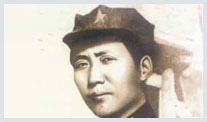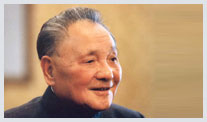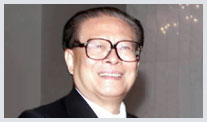|
New "Red star over China" 
|
| 2002-11-06 09:27:38 |
 The fact that China's reform and opening-up policy has produced a number of nouveau riche businessmen is no longer a novelty. Yet when these people start joining the ruling Communist Party of China, a party of proletarians, they begin to catch world's attention. But why do they join the party and how has the party come to accept them? What are the implications for China in allowing once so-called "capitalists" to joining their proud party? The fact that China's reform and opening-up policy has produced a number of nouveau riche businessmen is no longer a novelty. Yet when these people start joining the ruling Communist Party of China, a party of proletarians, they begin to catch world's attention. But why do they join the party and how has the party come to accept them? What are the implications for China in allowing once so-called "capitalists" to joining their proud party?
To many, the combination of a multi-millionaire businessman who travels by Mercedes Benz and a long-standing member of the communist party makes uneasy bedfellows. But for Qiu Jibao, president of Zhejiang Feiyue Group and a delegate of the upcoming 16th National Party Congress, his dual role is an easy one to live with.
Qiu said: "It's glorious for a party member to get rich so long as he does so lawfully and through hard work. And what really matters is that you invest your money in a way that benefits society."
Qiu has been true to his words. That his Feiyue Group has an annual output exceeding 100 million US dollars makes him a leading rich man in the locality.
As for Qiu himself, believe it or not, he still leads an incredibly simple life. He reserves his plush Mercedes Benz for business purposes only, and lives in a small apartment above the company's warehouse. He dines everyday at the employees' canteen.
Many of his employees testify that Qiu is a modest, fair and conscientious businessman by saying he doesn't carry with him the air of a big boss.
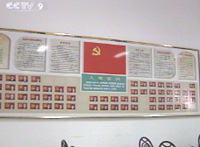 And Qiu ploughs a good portion of the company's profits back into community. The projects he has helped finance range from homes for the elderly to local libraries to numerous student scholarships at universities.
And Qiu ploughs a good portion of the company's profits back into community. The projects he has helped finance range from homes for the elderly to local libraries to numerous student scholarships at universities.
He said: "I am confident that corporations like ours represent the pioneering force of the nation. We share the country's unemployment problems, enrich local people's lives, and exert international influence. I don't think my joining the CPC will affect the party's pioneering role."
Today, Qiu's party membership is widely accepted and applauded. But this has not always been the case. When he first applied for party membership in the late 1980s, he met with some controversy.
But such controversy has eased with time. Party General Secretary Jiang Zemin's concept of "Three Represents", which was elaborated in his address marking the 80th anniversary of the founding of the CPC, sends a welcoming signal to private bosses like Qiu. According to the concept, they too, form part of the "broad masses" which the party is set to represent. Further still, Jiang Zemin called on outstanding private business people to join the party.
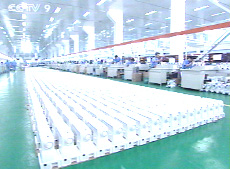 Shi Zhongquan, deputy director of the Party History Research Center in CPC Central Committee, said: "Given the fact that the private sector represents more than 80% of the economy in many parts of the country, and considering the indispensable role, it would be hard to imagine totally excluding this force from the CPC. Jiang Zemin's theoretical innovations are significant because they will help draw fresh blood for the Communist Party."
Shi Zhongquan, deputy director of the Party History Research Center in CPC Central Committee, said: "Given the fact that the private sector represents more than 80% of the economy in many parts of the country, and considering the indispensable role, it would be hard to imagine totally excluding this force from the CPC. Jiang Zemin's theoretical innovations are significant because they will help draw fresh blood for the Communist Party."
The general secretary's address has been warmly received by the private sector. Guo Xinfu, who runs a bio-chemical firm and applied for his party membership several years ago was accepted last September. He says he is greatly encouraged that he has been incorporated into the heart of the nation's advanced force.
He said: "For sure, we have earned our own wealth. But more importantly, we are creators of wealth. Jiang Zemin's theory emancipates us and recognizes our political status. Meanwhile, a strong party committee in my business has also strengthened the cohesion among workers."
Guo's ideas are shared by many of his colleagues. At present, in Zhejiang province where private sector is the most robust, the number of private businessmen who are also CPC members has reached 5,000. This accounts for about 2 percent of the bosses of the private sector. And this number is expected to grow.
The late senior Chinese leader Deng Xiaoping was particularly fond of a proverb he invented to justify the market economy reform process. If you can catch a mouse, you are a good cat. It doesn't matter if you are black or white. Admitting private businessmen into the CPC further expands on that theory and will prove to be another significant development in a Changing China.
|
|








